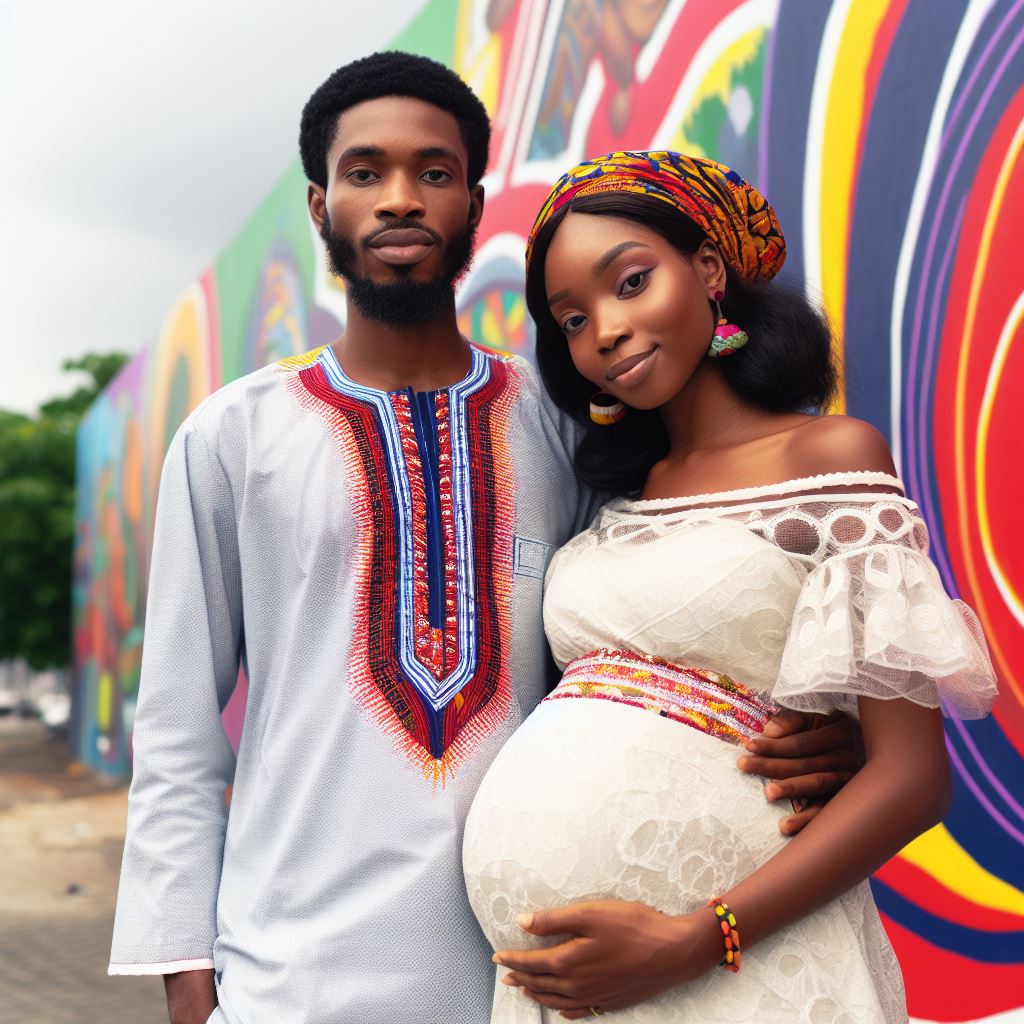Introduction
Definition of genotype compatibility
Genotype compatibility refers to the suitability of two individuals’ genetic makeup for a successful marriage.
It involves understanding the genetic traits each person carries to assess the risk of passing on hereditary conditions.
In the context of relationships and marriage, it guides couples in making informed decisions about family planning to minimize the risk of genetic disorders.
Importance of genotype compatibility in marriage
- It is essential to ensure genotype compatibility before tying the knot.
- Genotype compatibility in marriage is crucial for ensuring the health and well-being of future generations.
- By understanding genetic compatibility, couples can make informed decisions, reducing the risk of hereditary diseases.
- This knowledge fosters healthier family planning, minimizes potential health challenges, and contributes to the overall well-being of the couple and their children.
Brief overview of the prevalence of genetic disorders in Nigeria
Genetic disorders are prevalent in Nigeria, making compatibility even more crucial.
Educate Yourself about Genotype and Genetic Disorders
Genotype and its relationship to genetic disorders
- Genotype refers to the genetic makeup of an individual, determining their potential hereditary traits.
- Genetic disorders occur when there are abnormalities or mutations in the genes.
Different Genotypes and their Relationship to Genetic Disorders
- AA genotype means both alleles for a gene are normal, resulting in no genetic disorder.
- AS genotype means one normal allele and one abnormal allele, often associated with sickle cell trait.
- AC genotype refers to having one normal allele and one abnormal allele for a gene, leading to thalassemia trait.
- SS genotype means both alleles for a gene are abnormal, causing sickle cell anemia.
Common Genetic Disorders Linked to Specific Genotypes
- Sickle cell anemia is a genetic disorder mainly found in individuals with the SS genotype.
- Thalassemia is a blood disorder commonly associated with the AC genotype.
Read: Exploring the Four Main Blood Groups: A, B, AB, and O
Know Your Genotype
Encouragement to get genotype testing done before marriage
- When it comes to starting a family, it is essential to ensure genotype compatibility before tying the knot.
- This means understanding your own genotype and that of your partner to prevent the risk of passing on genetic diseases to your children.
- The first step in this process is to know your own genotype. It is crucial to undergo genotype testing before marriage to understand your genetic makeup.
- Genotype testing can be done in a laboratory through a simple blood test or by using home test kits available in the market.
Different ways to determine one’s genotype (laboratory testing, home test kits)
- There are different ways to determine one’s genotype. Laboratory testing is the most reliable and accurate method.
- It involves analyzing a blood sample to identify the specific genes and alleles that make up an individual’s genetic code.
- This type of testing can provide you with detailed information about your genotype and any potential risks associated with it.
- On the other hand, home test kits are becoming increasingly popular and convenient. These kits usually involve collecting a sample of saliva or blood through a painless process and sending it to a laboratory for analysis.
- Once the results are available, they can be accessed online or through a secure platform. However, it is important to note that the accuracy of these kits may vary, and it is advisable to opt for laboratory testing for a more reliable result.
Importance of both partners knowing their genotypes before marriage
- Both partners should know their genotypes before marriage. This knowledge is essential to understand the potential risks of passing on genetic diseases to future children.
- If both partners have the same genotype for a particular disease, such as sickle cell anemia, there is a higher risk of having children with the disease.
- On the other hand, if both partners have different genotypes, the risk is significantly reduced.
- Knowing your genotype also helps in making informed decisions about family planning. If both partners are carriers of a genetic disease, they might consider alternatives such as adoption or using assisted reproductive technologies to reduce the risk of passing on the disease to their children.
- Understanding your genotype allows you to seek appropriate medical advice and take necessary precautions.
- For example, if you know you are a carrier of a particular genetic disease, you can consult a genetic counselor who can provide guidance on the probability of passing on the disease to your children.
- They can also suggest preventive measures or medical interventions to ensure the well-being of your future family.
In short, knowing your genotype and that of your partner is crucial before getting married. This knowledge enables both partners to understand the potential risks of passing on genetic diseases to their children and make informed decisions about family planning.
Whether through laboratory testing or home test kits, taking the necessary steps to ensure genotype compatibility will ultimately contribute to the health and well-being of future generations.
Read: The Role of Blood Groups in Pregnancy and Transfusions
Discuss Genotype Compatibility with Your Partner
Importance of open and honest communication about genotype compatibility
In any romantic relationship, open and honest communication is key to a strong and healthy partnership.
When it comes to genotype compatibility, discussing this topic with your partner is of utmost importance.
Implications of having a certain genotype combination (e.g., health risks for offspring)
- It is crucial to understand the implications of having a certain genotype combination.
- Some combinations may result in health risks for offspring, such as the possibility of inheriting certain genetic disorders or diseases.
- By discussing genotype compatibility, couples can make informed decisions about their future together and the potential risks they may face in starting a family.
Encouraging couples to have these discussions early in the relationship
- Initiating this conversation early in the relationship is highly encouraged. Waiting until later stages may lead to misunderstandings or resentment if one partner finds out they are not compatible genetically, especially if they have already invested a significant amount of time and emotions in the relationship.
- An open and non-judgmental atmosphere should be cultivated during this discussion. Both partners should feel comfortable expressing their concerns and fears without the fear of judgment or ridicule.
- Creating an environment where both partners can freely share their genetic history and any potential risks they may bring into the relationship is essential.
- Another crucial aspect to consider when discussing genotype compatibility is the emotional impact it may have on both partners.
- It is essential to approach this conversation with empathy and understanding, as it may bring up various emotions, such as fear, anxiety, or even relief if the couple discovers they are compatible.
- While it is necessary to have these discussions, it is important to remember that genotype compatibility is just one factor to consider when deciding to start a family.
Additional points
- Other factors such as emotional compatibility, shared values, and mutual respect are equally important in determining the strength and sustainability of a relationship.
- Seeking professional advice from genetic counselors or healthcare providers can provide couples with more accurate and detailed information about potential risks and the available options.
- By having open and honest conversations about genotype compatibility, couples can make informed decisions about their future and the type of family they want to build.
- This communication fosters trust and transparency in the relationship, leading to a solid foundation for a lasting partnership.
In fact, discussing genotype compatibility with your partner is an important step to take before tying the knot.
Open and honest communication about the potential implications of certain genotype combinations can help couples make informed decisions about their future together.
Starting these discussions early in the relationship, creating a safe and non-judgmental space, and considering the emotional impact are crucial aspects of this conversation.
Remember that genotype compatibility is just one factor to consider when starting a family, and seeking professional advice can provide couples with more detailed information.
Ultimately, these discussions strengthen the bond between partners and ensure a strong and healthy foundation for their future.
Read: Preventing Sickle Cell Disease: A Guide for Prospective Couples

Consider Genetic Counseling
Genetic counseling plays a crucial role in ensuring genotype compatibility before tying the knot.
This process involves seeking professional guidance and advice from experts in the field of genetics to assess the risks and potential outcomes of having children with genetic disorders.
What is Genetic Counseling?
- Genetic counseling is a specialized service that provides individuals and couples with information about the genetic factors that may impact their health and the health of their future children.
- It involves a detailed analysis of the medical and family history of the couple, along with genetic testing and risk assessment.
- Genetic counselors are trained professionals who help individuals and couples make informed decisions regarding their reproduction and family planning.
The Benefits of Genetic Counseling before Marriage
- Identifying Potential Genetic Risks: Genetic counseling can identify if either partner carries genes for hereditary conditions that may be passed on to their children.
- Understanding Risk Factors: Couples can gain a better understanding of the chances of having a child with a genetic disorder and the severity of potential health issues.
- Exploring Options: Genetic counseling provides couples with information on available options such as prenatal screening, assisted reproductive techniques, or adoption.
- Mental and Emotional Preparation: Knowledge about potential risks and available options can help couples better prepare for the future and make informed decisions.
- Reducing Stigma: Genetic counseling can help reduce the stigma associated with genetic disorders by increasing awareness and understanding.
Finding Genetic Counseling Services in Nigeria
- National Hospital Abuja: The Department of Medical Genetics offers genetic counseling services in Nigeria’s capital city.
- University College Hospital, Ibadan: The Department of Medical Genetics provides counseling services for individuals and couples.
- Lagos State University Teaching Hospital: The Department of Obstetrics and Gynecology offers genetic counseling services.
- Federal Medical Center, Umuahia: The Medical Genetics Unit provides counseling for individuals and couples.
- University of Lagos Medical Center: The Department of Medical Genetics offers genetic counseling services.
Genetic counseling is an essential step to ensure genotype compatibility before entering into marriage. It allows couples to make informed decisions, understand potential risks, and explore available options.
By seeking genetic counseling services in Nigeria, individuals and couples can take proactive measures to safeguard the health and well-being of their future children.
Read: Navigating Love and Science: Genotypes in Nigerian Weddings
Find Out More: Overcoming Resentment: The Path to Forgiveness
Discuss with Family and Seek Advice
Importance of involving family members in the decision-making process
- When it comes to making important life decisions, such as choosing a life partner, involving family members can be incredibly beneficial.
- Not only do they have a deep understanding of your values and beliefs, but they also have your best interests at heart.
- By involving them in the decision-making process, you can gain valuable insights and perspectives that can help you make a more informed choice.
- Family members often have a broader life experience and knowledge about potential challenges you may face in the future.
- They can provide guidance based on their own experiences, which can be invaluable in making a decision.
- By discussing your plans with your family, you can gauge their reactions and understand how your decision may impact your relationships with them.
- Involving family members in the decision-making process can strengthen family bonds and create a sense of unity.
- When they feel that their opinions and advice are valued, they are more likely to support your decision wholeheartedly. This can lead to a happier and more fulfilling married life, knowing that your family is fully behind you.
Seeking advice from family members who may have experience with genetic disorders
Genetic disorders can have a significant impact on a couple’s life, both emotionally and physically.
- It is crucial to seek advice from family members who may have experience with genetic disorders. They can offer insights into the challenges that may arise and provide guidance on how to handle them.
- Family members who have dealt with genetic disorders firsthand can share their stories, helping you understand the potential consequences and the precautions you need to take.
- They can also recommend medical professionals or support groups that specialize in dealing with genetic disorders, providing you with the necessary resources for making informed decisions.
- By seeking advice from family members who have experience with genetic disorders, you can also gain a better understanding of the possible hereditary risks.
- This knowledge can help you make an informed decision and take necessary steps to ensure the health and well-being of your future children.
Considering their opinions and guidance while making a decision
- While it is important to involve family members and seek their advice, ultimately, the decision rests with you and your partner.
- However, considering their opinions and guidance can provide you with a well-rounded perspective on your choices.
- It is crucial to have open and honest conversations with your family members, actively listening to their thoughts and concerns.
- Take the time to reflect on their advice and weigh it against your own values and aspirations. Ultimately, you and your partner should make a decision that aligns with your goals and beliefs.
- Remember that family members may have different perspectives and biases influenced by their own experiences.
- It is essential to take their advice into consideration while maintaining your autonomy in making the final decision.
Gain More Insights: Local Festivals & Their Anniversary Greetings in Nigeria
Explore Options and Alternatives
When it comes to tying the knot, ensuring genotype compatibility is of utmost importance. Couples need to explore options and alternatives to make informed choices before making a final decision.
Alternative options for couples with incompatible genotypes
- Pre-implantation Genetic Diagnosis (PGD): This technique helps identify embryos with desired genotypes before implantation.
- Adoption: Couples can choose to adopt a child instead of having biological children.
Both PGD and adoption provide alternative paths for couples facing genotype compatibility issues. It is crucial to discuss these options openly with your partner and weigh the pros and cons.
Importance of considering these options before making a final decision
- Before tying the knot, couples must understand the implications and consequences of their genotype compatibility. Choosing the right option can significantly impact their lives.
- By exploring alternatives like PGD or adoption, couples can ensure that they are fully prepared and equipped to handle any challenges that may arise from genotype-related issues.
- It is important to have open and honest conversations with your partner about these choices and take into account emotional, financial, and ethical factors when making a final decision.
Encouraging couples to explore various alternatives and make informed choices
- While genotype compatibility can be a sensitive subject, it is essential to approach it with a proactive mindset. Couples should not be afraid to seek professional advice and support.
- By exploring alternatives, such as PGD or adoption, couples can find solutions that align with their values and goals. This process can help strengthen their relationship and foster understanding and empathy.
- It is crucial for couples to educate themselves about the available options and engage in open and respectful discussions with each other. This way, they can make informed choices that are in the best interest of their future family.
- Seeking guidance from genetic counselors or medical professionals specializing in reproductive health can provide couples with valuable insights and expert advice.
To summarize, before tying the knot, it is crucial for couples to ensure genotype compatibility. Exploring options like pre-implantation genetic diagnosis and adoption can help couples navigate through potential issues and make well-informed choices.
By approaching these discussions openly and seeking professional guidance, couples can ensure a strong foundation for their future together.
Conclusion
Recap of the importance of genotype compatibility before marriage
Understanding the significance of genotype compatibility before tying the knot is crucial for ensuring a healthy and happy married life.
Summary of the steps discussed to ensure genotype compatibility
To summarize, we have discussed several steps that can aid in determining genotype compatibility:
- Learning about genetic inheritance patterns and the risks associated with certain genotypes.
- Seeking genetic counseling and undergoing genetic testing to identify potential health risks.
- Having open and honest discussions with your partner about your genotypes and the potential risks.
- Considering all the available options, such as pre-implantation genetic diagnosis or adoption.
Encouragement for couples to prioritize their future children’s health and well-being by taking these steps.
- It is essential for couples to prioritize the future health and well-being of their children. By taking these proactive steps, couples can increase their chances of having healthy children free from inherited genetic disorders.
- Remember, love alone cannot conquer the challenges that may arise from incompatible genotypes. The well-being of future generations should be the utmost priority for couples.
- By following these steps, couples can make informed decisions about their future and ensure a healthy and happy family life.
- So, before you say ‘I do,’ take the necessary precautions and embark on a journey towards a healthy and genetically compatible marital life.




